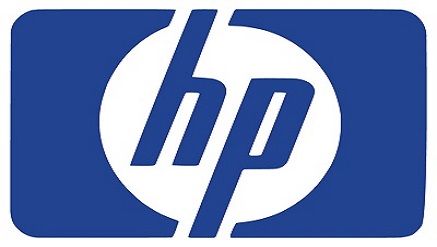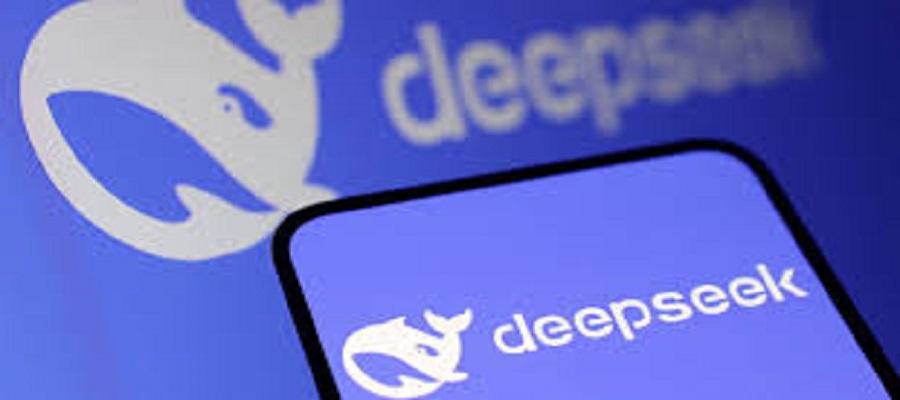E-Business
HP, Alcatel-Lucent Strengthen Global Alliance

HP and Alcatel-Lucent have announced an expansion of their global alliance to help the world’s largest organizations and service providers build network-enabled, distributed cloud solutions to create new business opportunities and greater efficiencies, while improving customer service.
The partnership incorporates selected Alcatel-Lucent IP routing and optical products into HP’s existing routing and storage portfolios, allowing organizations to more efficiently leverage the convergence of IT and telecommunications to realize reduced complexity and greater agility.
“HP and Alcatel-Lucent’s expanded alliance demonstrates our deep joint commitment to help large organizations and service providers transform and disrupt their respective industries and markets,” said Antonio Neri, senior vice president and general manager, HP enterprise group. “We do this by taking each other’s best-in-class flagship products from our respective IT and networking portfolios, to deliver a unique set of data center and network solutions that reduce complexity, lower OPEX and boost agility to accelerate innovation of new products and services.”
“This expanded alliance with HP allows us to continue doing what we do best — building networks that help meet our customers’ objectives. And it will allow us to leverage the strengths of both companies to increase the value we deliver to those customers,” said Basil Alwan, President Alcatel-Lucent IP Routing and Transport. “Together, we will continue to innovate and offer large enterprises and service providers the industry’s most agile and flexible solutions with the right performance and economics for the cloud era.”
Increased business agility with new wide-ranging storage solutions: HP Storage will extend its solutions between datacenters to provide joint HP and Alcatel-Lucent customers with fully validated end-to-end business continuity and disaster recovery capabilities.
These solutions will enable customers to enhance flexibility within the datacenter and stay agile in deployment, while meeting regulatory, security and compliance challenges.
HP and Alcatel-Lucent have certified long distance synchronous, low-latency replication using HP 3PAR RemoteCopy for distances up to 130 kilometers.
The solution components include HP 3PAR StoreServ Storage, HP 3PAR Remote Copy software, HP StoreFabric Storage Networking and Alcatel-Lucent 1830 PSS optical products.
Enhanced scalability using Alcatel-Lucent IP Service Routers: HP Networking is expanding its WAN router portfolio for large organizations with the targeted adoption of selected Alcatel-Lucent Carrier-grade routers.
The additional capabilities provide the greater scale needed for transformative WAN solutions by large organizations for the new style of IT, while strengthening HP to deliver high quality, end-to-end network solutions.
HP is targeting the second quarter of 2015 as the first ship date for the Alcatel-Lucent routers.
Next generation platform offerings: Alcatel-Lucent has comprehensively adopted HP IT technologies and HP supply chain efficiencies. Alcatel-Lucent has also recently joined as a member of the HP’s Early Access Forum for HP Helion, HP’s open-source, distributed cloud computing platform based on OpenStack® technology.
As a result, Alcatel-Lucent offers more sophisticated solutions that are based on common technologies helping customers exploit the advantages of standards-based server, processor, and operating system technologies.
Alcatel-Lucent and HP deepen partnership in IT Transformation: Since the original agreement in 2009, HP has been a key partner in Alcatel-Lucent’s strategic IT transformation by providing advanced infrastructure and services that deliver higher performance and greater efficiency.
The transformation includes the move of future applications hosted in the cloud, including the rationalization of applications and datacenter sites. HP and Alcatel-Lucent are also working collaboratively to drive IT Service Management improvements, including a world-class security framework and end-user satisfaction, and have initiated joint innovation programs for mobility and cloud services.
E-Business
South Korea Joins List of Countries Banning DeepSeek over Security Concerns

South Korean authorities have temporarily blocked new downloads of the DeepSeek artificial intelligence (AI) app, citing concerns over the company’s handling of user data.

The country’s Personal Information Protection Commission (PIPC) announced the decision on Monday, saying that the Chinese AI startup had failed to fully comply with South Korea’s data protection laws.
According to PIPC, DeepSeek recently appointed legal representatives in South Korea and admitted to partially neglecting regulatory considerations regarding user privacy.
“The Chinese startup appointed legal representatives last week in South Korea and had acknowledged partially neglecting considerations of the country’s data protection law,” the PIPC said.
The commission added that the app’s service would resume once the company implements improvements in accordance with national privacy laws.
According to Reuters, when asked about South Korea’s move, a spokesperson for China’s foreign ministry said the Chinese government prioritises data privacy and security, ensuring compliance with legal standards.
The spokesperson also said China does not require companies or individuals to collect or store data in violation of laws.
The ban follows similar actions by other governments.
On February 4, Australia prohibited the use of DeepSeek on government devices due to security concerns.
Italy’s privacy regulator recently blocked the AI service, citing the company’s failure to address data policy issues.
Taiwan has also warned about potential risks related to cross-border data transmission and information leaks.
Also, regulators in Ireland and France have launched investigations into DeepSeek’s data-handling practices.
DeepSeek gained global adoption for its advanced human-like reasoning capabilities and open-source model.
In January, it surpassed OpenAI’s Chatgpt as the most downloaded free app on the Apple store.
E-Business
AU Endorses Nigeria as AfCFTA Digital Trade Champion

The African Union (AU) has officially designated Nigeria as the Digital Trade Champion under the African Continental Free Trade Area (AfCFTA) Digital Trade Protocol, citing the country’s leadership in digital enterprise and innovation.

The endorsement came at the 38th Ordinary Session of the Assembly of Heads of State and Government, which concluded on Sunday in Addis Ababa.
Nigeria’s proactive role in advancing the digital trade protocol, adopted in February 2024, was a key factor in the decision.
The AfCFTA Digital Trade Protocol encompasses eight annexes covering crucial areas such as rules of origin, digital identities, cross-border data transfers, online safety, and financial technology. The protocol is expected to provide a robust framework for Africa’s digital economy.
According to a statement issued on Monday by Special Adviser to the President on Information and Strategy, Bayo Onanuga, former President of Niger Republic and AU AfCFTA Champion, Mahamadou Issoufou, praised Nigeria’s leadership, particularly for convening the Digital Economy Roundtable in January.
“No organization, region, or continent has negotiated or adopted such a comprehensive legal instrument on digital trade, positioning the African continent to benefit from the digital economy for innovation and job creation,” Issoufou said in his progress report to the AU Assembly.
He also highlighted Africa’s growing influence in digital innovation, particularly in mobile banking and financial technology, and noted that the protocol would create an enabling environment for young African entrepreneurs.
“The AfCFTA Protocol on Digital Trade will establish a conducive environment for these young people to fully participate in Africa’s digital economy,” Issoufou added.
Reflecting on the roundtable in Abuja, he commended President Bola Tinubu and his administration for facilitating discussions with key stakeholders.
“The Roundtable was attended by young pioneers in Fintech, mobile banking and other areas of the digital economy. It was evident from the discussions that young people are eager to take advantage of Africa’s digital economy through the AfCFTA Protocol on Digital Trade”, he said.
Speaking at the AU summit, Nigeria’s Minister of Industry, Trade and Investment, Dr. Jumoke Oduwole, described the AU’s endorsement as a milestone in Africa’s economic development.
“Africa has demonstrated global leadership by pioneering the first-of-its-kind AfCFTA Protocol on Digital Trade—establishing a comprehensive regulatory framework,” Dr. Oduwole stated.
She emphasized that the protocol is a “game changer” for the continent, predicting that it would generate millions of jobs, contribute billions to Africa’s GDP, and attract significant investments in digital infrastructure.
E-Business
Schmidt, Ex Google Chief Says AI Risky in Terrorist Hands

Eric Schmidt, former Google CEO has expressed concerns about the extreme risks posed by artificial intelligence (AI) falling into the hands of terrorists or rogue states.

Eric Schmidt, former Google CEO
He warned that nations such as North Korea, Iran, and Russia could adopt AI technologies to develop weapons capable of causing significant harm, including biological weapons.
Schmidt urged governments to oversee private tech companies, emphasising, “The real fears I have are not the ones most people discuss about AI, I talk about extreme risk.”
“I’m always worried about an ‘Osama Bin Laden’ scenario, where truly evil individuals take control of some aspect of modern life to harm innocent people,” he added.
With private companies driving AI advancements, he stressed the need for careful government monitoring and regulation. “It’s really important that governments understand what we’re doing and keep their eye on us,” he said.
His remarks followed a two-day AI summit in Paris, where the UK and the U.S. declined to sign a communiqué outlining the future direction of AI. The declaration on “inclusive and sustainable artificial intelligence for people and the planet” was endorsed by 57 countries, including India, China, the Vatican, the EU, and the African Union Commission.
The UK justified its decision, stating that the agreement lacked “practical clarity” on global AI governance and national security concerns.
Schmidt supports U.S. export controls restricting the sale of advanced AI microchips to certain countries, aiming to slow adversaries’ progress in AI research.
He also highlights the importance of international collaboration on AI safety, suggesting that cooperation with nations like China is essential to addressing global AI challenges.

 E-Financial1 day ago
E-Financial1 day agoFG Seeks Fresh $300m Loan from World Bank for Health Security

 E-Financial1 day ago
E-Financial1 day agoSERAP Gives CBN 48-Hour Ultimatum to Withdraw ATM Fee Hike

 News1 day ago
News1 day agoBinance Chief Insists Some FG Officials, Reps Demand $150m Bribe

 General News1 day ago
General News1 day agoFG Drops Merger of NCAA, NAMA

 News1 day ago
News1 day agoinDrive Unveils Cashless Bank Transfer Feature in Nigeria

 E-Financial1 day ago
E-Financial1 day agoCardinalStone Acquires Radix Pension Managers

 Telecom1 day ago
Telecom1 day agoNITDA Pledges to Foster Innovation with Cloud Infrastructure and AI Applications

 Telecom3 hours ago
Telecom3 hours agoToriola, MTN Nigeria CEO again Defends Tariff Hikes amidst Backlash


























